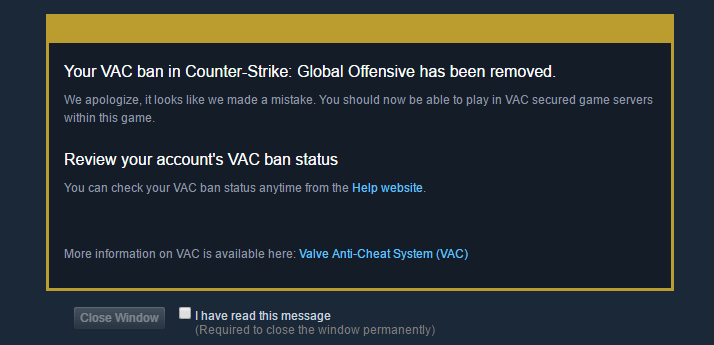Tech Versum: Explore the Future of Technology
Dive into the latest trends and innovations in technology with Tech Versum.
Tattletale or Hero? The Curious Case of CS:GO Toxicity Reports
Uncover the fine line between tattletales and heroes in CS:GO! Explore the impact of toxicity reports and their role in gaming culture.
Understanding CS:GO Toxicity Reports: Help or Harm?
Counter-Strike: Global Offensive (CS:GO) has become notorious for its community toxicity, leading to the implementation of toxicity reports. These reports allow players to report toxic behavior such as harassment, cheating, or abusive language, aiming to foster a better gaming environment. However, the question arises: are these reports genuinely effective in reducing negative conduct, or do they inadvertently contribute to a culture of negativity among gamers? While some players claim that reporting has led to significant improvements, others argue that the system can be misused, leading to a cycle of false accusations and further toxicity.
Moreover, the consequences of toxic behavior reported can vary widely. On one hand, accurately reported players may face penalties, ranging from temporary bans to permanent account restrictions, which can deter future misconduct. On the other hand, the fear of being unjustly reported may lead to over-cautious behavior among players, stifling genuine communication and camaraderie. Ultimately, understanding the dynamics of CS:GO toxicity reports requires a balanced view, weighing their potential benefits against the risks of fostering a hostile gameplay atmosphere, making it essential for developers and the community to work together towards effective solutions.

Counter-Strike is a highly popular first-person shooter game that focuses on team-based gameplay. Players can enhance their security and compete safely by understanding what is Steam Guard, which helps protect their accounts from unauthorized access.
The Fine Line Between Reporting and Tattling in CS:GO
In the competitive world of CS:GO, players often find themselves navigating the complex dynamics of team interactions. Understanding the fine line between reporting and tattling is crucial for maintaining a positive gaming environment. Reporting typically involves raising legitimate concerns about players who engage in toxic behavior, cheat, or disrupt the overall flow of the game. This process is essential for promoting fair play and ensuring that everyone can enjoy the game. On the other hand, tattling is often associated with immature behavior where players report others out of personal grievances, jealousy, or a desire to gain an unfair advantage.
To further clarify this distinction, it's important for players to reflect on their motivations when considering whether to report someone. A helpful approach is to ask oneself the following questions:
- Is this behavior negatively affecting the gameplay experience for others?
- Am I reporting this player for valid reasons, such as cheating or harassment, rather than personal dislike?
How Toxicity Reports Impact Your CS:GO Experience: A Deep Dive
Toxicity reports in CS:GO play a crucial role in shaping the overall community experience. The game’s reporting system allows players to flag toxic behavior, such as harassment or cheating, which can lead to disciplinary actions against offenders. This system not only promotes a healthier gaming environment but also encourages players to adhere to the community's standards. When players feel empowered to report misconduct, it helps to cultivate a more respectful and enjoyable atmosphere in competitive matches.
Moreover, the impact of toxicity reports extends beyond individual experiences. CS:GO employs algorithms that analyze these reports to determine player behavior trends, which can ultimately influence matchmaking. Players with high rates of toxicity may find themselves grouped with others who exhibit similar behavior, creating a distinct dynamic in gameplay. As a result, understanding how toxicity reports affect matchmaking can lead to a more strategic approach in recognizing and mitigating toxic elements within your gaming sessions.